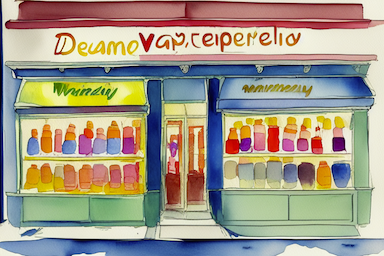
Practicals of Lean Startup - Part 2
A startup business is no easy feat and not for everyone to "try". It is reported from several sources (KPMG, PWC, EY...) that about 90% of startups fail within 2 years and are forced to close shop. The core reason behind these failures is money management. To counteract this issue, it is highly recommended by experts that startups go lean. Going lean requires significant discipline in the form of "delayed gratification".
Saving money on almost every aspect of your business is key to achieving success in the long run. Today's tip is helping you save on "internet data costs" for conducting your daily work.
Utilise the available bandwidth offered by popular eateries. The Netherlands, for example, has one of the best and densely distributed internet connections in the world. Buses have free wifi, trains have free wifi, and all the popular eateries like KFC, MacDonalds, Starbucks, and Dominos have free access to the internet.
Using their free internet is awesome BUT there is a small catch here. It is important to "time" your visit to such eateries because they are popular with teenagers who often "hog" on the free internet. So, conduct your business activities when those eateries open and aren't that busy. It is also wise to purchase some sort of concessions such as a donut, drink or their cheapest offering. And for your own sake, stick to just one thing only. You would be a paying customer who is utilising their electrical connection and free wifi. Also, plan your trips so that you spread out your visits. For example Monday (KFC), Tuesday (MacDonalds), Wednesday (Starbucks), Thursday (Train station), Friday (Dominos), Saturday & Sunday (Home).
That's how you save on internet bandwidth as you start lean. It's my two cents. Stay professional.
 About the author: Sal Souza is an International Designer (Graphic, Visual, Multimedia, Broadcast Media, Industrial, User Interaction, User Experience) and IT Consultant with expertise in New Media, Web 3.0, IPTV, DTV, Media Production, Product Prototyping, Desktop Software, Interactivity, Mobile Applications, Traditional Knowledge, Geographical Indications and Cultural Goods. He lives and works in Nijmegen, The Netherlands.
About the author: Sal Souza is an International Designer (Graphic, Visual, Multimedia, Broadcast Media, Industrial, User Interaction, User Experience) and IT Consultant with expertise in New Media, Web 3.0, IPTV, DTV, Media Production, Product Prototyping, Desktop Software, Interactivity, Mobile Applications, Traditional Knowledge, Geographical Indications and Cultural Goods. He lives and works in Nijmegen, The Netherlands.